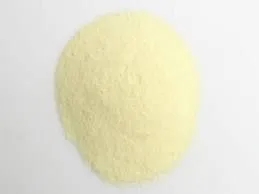High quality export phospholipid
Time:2024-02-22
product's safety, quality, and adherence to international trade standards. The specific conditions may vary depending on the countries involved, but here are some general considerations for exporting phospholipids:
Quality Standards:
Ensure that the phospholipids meet the quality standards set by relevant international organizations. These standards may include specifications for purity, composition, and other quality parameters.
Documentation:
Prepare and provide the necessary documentation for export. This typically includes a certificate of analysis, certificates of origin, and other documents required by regulatory authorities in the exporting and importing countries.
Customs Documentation:
Comply with customs documentation requirements, including invoices, packing lists, and any other documentation required for customs clearance in both the exporting and importing countries.
Product Labeling:
Ensure that the product labeling complies with the regulations of the destination country. This may include information on ingredients, nutritional content, allergens, and other relevant details.
Packaging:
Ensure that the packaging of phospholipids is appropriate for international transport and complies with packaging regulations. Proper packaging helps prevent contamination and ensures product integrity during transit.
Regulatory Compliance:
Understand and comply with the regulatory requirements of both the country of origin and the destination country. This includes compliance with food safety, labeling, and quality standards.
Import Permits and Regulations:
Verify if an import permit is required by the destination country for the importation of phospholipids. Comply with any specific import regulations set by the importing country's authorities.
Hazardous Materials Compliance:
If phospholipids are classified as hazardous materials, comply with international regulations for the transport of dangerous goods. This may include proper labeling, packaging, and documentation.
Traceability:
Implement traceability systems to track the origin and processing of phospholipids. This is essential for quality control and may be required by regulatory authorities.
Testing and Analysis:
Conduct regular testing and analysis of the phospholipids to ensure they meet specified quality standards. This may include testing for purity, contaminants, and other relevant parameters.
Phytosanitary Certificates (if applicable):
For certain agricultural or plant-derived products, a phytosanitary certificate may be required to ensure that the products are free from pests and diseases.
It's important for exporters to work closely with relevant government agencies, industry associations, and legal experts to navigate the specific requirements for exporting phospholipids to a particular destination.Additionally, staying informed about changes in regulations and trade agreements can help exporters adapt to evolving conditions in the international market.


 CN
CN





